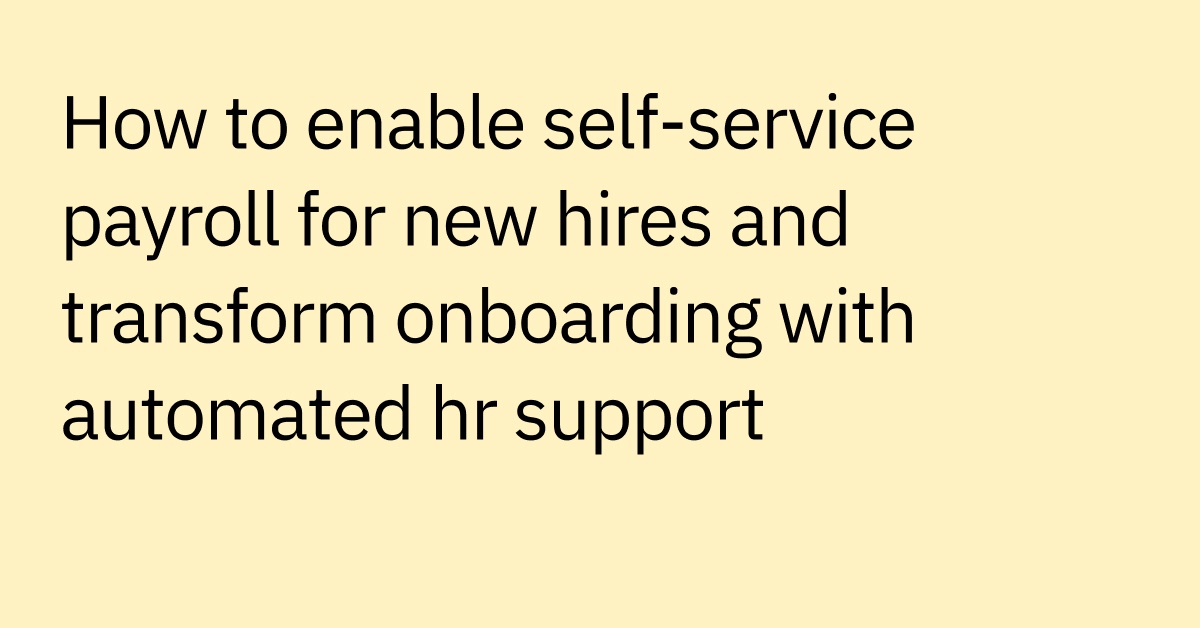Table of contents
Highlights
- Managed service providers (MSPs) help IT teams scale by outsourcing help desk functions, but often sacrifice visibility, speed, and contextual insight.
- Traditional MSP models depend on ticket-based workflows and fixed SLAs that emphasize response times over real resolution speed.
- AI automation provides on-demand, context-aware support that scales dynamically without increasing headcount or introducing vendor dependency.
- Intelligent assistants streamline high-volume tasks like password resets, provisioning, and access requests—instantly and autonomously.
- Moveworks helps IT teams transition from reactive outsourcing to in-house AI automation, enabling faster resolutions, lower costs, and greater control.
As your business grows, so do the number of support requests your IT team has to manage.
Over time, even your most experienced team members can find themselves tied up with routine tasks — like password resets or VPN troubleshooting — instead of focusing on more engaging challenges or strategic initiatives.
One common solution is to bring in a managed service provider (MSP) to help lighten the load. And for many organizations, outsourcing help desk support does offer relief and more predictable costs.
However, there are pros and cons to this support model, and many IT leaders are now also exploring AI-powered automation — a modern, more scalable way to streamline support and stay ahead of growing demand.
What is a help desk MSP, and how does it work?
A managed service provider is an external company that manages and delivers a range of IT services on behalf of another organization — often including help desk support, infrastructure management, network monitoring, and more.
MSPs typically operate under a contractual agreement and offer services like ticket resolution, multilingual support, and service desk operations.
It’s worth noting that while your help desk functions may all fall under MSP services, these terms aren’t interchangeable. A service desk is a dedicated team or function that directly manages IT support requests, resolves tickets, and acts as the main point of contact between IT and employees.
An MSP, on the other hand, is the third-party vendor brought in to manage those service desk operations on your behalf.
Benefits of help desk MSPs
Outsourcing your help desk to an MSP can offer a wide range of advantages, especially when internal teams are stretched by high ticket volume or resource constraints:
- More focus on core objectives: Offloading routine ticket handling to outside teams allows internal teams to focus on strategic, high-value initiatives.
- Predictable support costs: MSPs often offer fixed or per-user pricing models that help you plan and manage IT budgets more effectively.
- Scale without increasing headcount: Outsourcing gives you the flexibility to scale support capacity as your business grows, without needing to hire and train additional staff.
- Support for global teams: Many MSPs offer 24/7, multilingual coverage — ideal for organizations with distributed workforces.
- Improved service continuity: Since MSPs manage their own staffing and training, they can reduce disruptions caused by employee turnover.
- Access to specialized skills: MSPs often bring deep expertise in areas like network security, compliance, or legacy systems that may not exist in-house.
While these benefits make MSPs an attractive option for many growing businesses, they also come with certain trade-offs.
Limitations of MSP help desk partnerships
While MSPs can help reduce pressure on internal teams, they may introduce new challenges — especially when your organization requires more speed, visibility, or flexibility.
The ticket-based model used by most MSPs can lead to slower resolution times, limited visibility into support operations, and integration challenges with internal systems.
While many MSPs operate under fixed service level agreements (SLAs), these service agreements often prioritize initial response times — not fast and effective resolutions, which matter most to employees.
Loss of visibility into support performance
MSPs often use their own ticketing systems, which can limit access to real-time data and recurring issue trends. Without visibility, IT teams become reactive — waiting for the MSP to surface problems rather than proactively addressing them.
For example, if VPN-related tickets spike, you may be notified — but without deeper context, it can be difficult to determine whether the root cause is a server issue, user error, or something else entirely.
Slower response times and outdated SLAs
Many MSP SLAs focus on time-to-response rather than time-to-resolution. That means tickets may be acknowledged quickly but still take hours to resolve — even for simple requests like license provisioning or password resets.
Internal teams or AI-powered tools may be able to handle those same issues in a matter of minutes.
Poor alignment with employee expectations
Today’s employees are used to chat-based tools and real-time answers in their personal lives, and they expect the same responsiveness at work. But MSPs may not always deliver that experience, especially for remote employees working outside standard hours.
Off-hours help desk agents may be unfamiliar with your software stack, or unable to assist in the employee’s preferred language, leading to added friction.
Limited scalability
While outsourcing can help you expand support quickly, scaling with an MSP still depends on adding headcount. That process takes time — and in some cases, contracts may lock you into a minimum number of agents, even during slower periods. This can limit flexibility and increase costs.
Limited organizational context
MSP teams typically lack the day-to-day familiarity with your tools, systems, and workflows that internal teams develop over time. While knowledge transfer can help, it’s often not enough.
Without that context, even routine requests can become time-consuming and disruptive to employee productivity.
Benefits of AI for help desk support
While MSPs can be invaluable, many businesses find they need a different approach for faster, more efficient support: AI-powered automation. Using an AI-enabled ITSM platform, you can create a more resilient, flexible, and user-centric support experience for all your employees, one that offers:
- Better ROI and scalability: AI solutions offer dynamic help desk coverage without the limits of headcount-based pricing. This frees up your budget and allows you to scale more efficiently.
- Increased consistency and continuity: AI solutions can operate 24/7 without manual intervention. Because they're unaffected by staff turnover or training, your employees can get reliable support whenever they need it.
- Improved agility: As your business grows, AI-enabled help desk tools are built to evolve with you. They can adapt to your tech stack and integrate with new applications seamlessly.
- Added support for global teams: For distributed workforces, AI provides real-time, multilingual support on demand, ensuring every team member gets the same quality experience.
- Intelligent automated workflows: Advanced AI platforms leverage natural language processing (NLP) and machine learning algorithms to learn from their environments and improve over time. This gives your business the ability to streamline multi-step support workflows while reducing manual, hands-on work.
What do help desk MSPs cost compared to in-house or automated solutions?
The cost of a help desk MSP depends on the contract structure and level of service.
In most cases, businesses pay a fixed monthly fee based on the number of users or devices supported. In the U.S., this typically ranges from $50 to $100 per user per month.
For a company with 150 employees, that translates to $90,000–180,000 a year. For larger enterprises, those costs can skyrocket — and so do the hidden expenses.
Slower resolutions reduce productivity, poor experiences lower employee satisfaction, and limited visibility makes it harder to optimize your IT environment. Over time, these challenges can impact growth, revenue, and talent retention.
Self-service automation platforms, by contrast, often cost between $5 to $50 per user per month. They’re not only often more cost effective — they help avoid many of the common limitations associated with MSPs, including slow turnaround, siloed data, and inflexible support models.
Real-world results speak for themselves:
- Palo Alto Networks saved over 350,000 productivity hours with an AI-powered support tool.
- 98% of Procore employees report a positive experience using their AI assistant.
- Vituity automated routine tasks and freed up 40% of its L1 help desk agents to focus on more strategic initiatives.
What to automate and what to outsource to MSPs
You don’t need to choose between building an internal help desk and fully outsourcing to an MSP. A hybrid model — strategically combining AI-powered automation with targeted outsourcing — lets you scale support efficiently and cost-effectively.
What to outsource
- Tier 2 and tier 3 support that requires specialized IT expertise
- Support for legacy mission-critical systems with niche requirements
- Hands-on tasks like advanced hardware setup or user-specific access configuration
- Short-term support when you're experiencing higher-than-normal ticket volumes or during a large-scale system migration
What to automate
- High-volume, repetitive tickets like password resets and application access
- Self-service knowledge and resources access that empower employees to find answers quickly
- Common workflows that involve multiple tools or departments
- Intelligent ticket routing and categorization based on issue type and urgency
Choose a smarter way to scale support — without over-relying on an MSP
While partnering with an MSP can help reduce the burden on your help desk, it can come at the cost of speed, visibility, and control. You shouldn’t have to trade fast, high-quality support for scalability.
Moveworks is an AI-powered support solution designed to improve efficiency, flexibility, and the employee experience.
Moveworks agentic AI Assistant — built to take meaningful action on behalf of employees — seamlessly integrates with tools across IT, HR, and identity management, including ServiceNow, Okta, and Workday to streamline enterprise support operations.
Instead of navigating rigid MSP contracts and slow ticket resolution times, Moveworks helps you scale in-house support while maintaining full visibility and control.
With intelligent automation, you can address repetitive issues instantly, surface actionable insights from system data, and give your teams more time to focus on strategic initiatives.
Ready to build a more agile, resilient support model that your employees will love? Learn how you can supercharge your service desk with AI.



